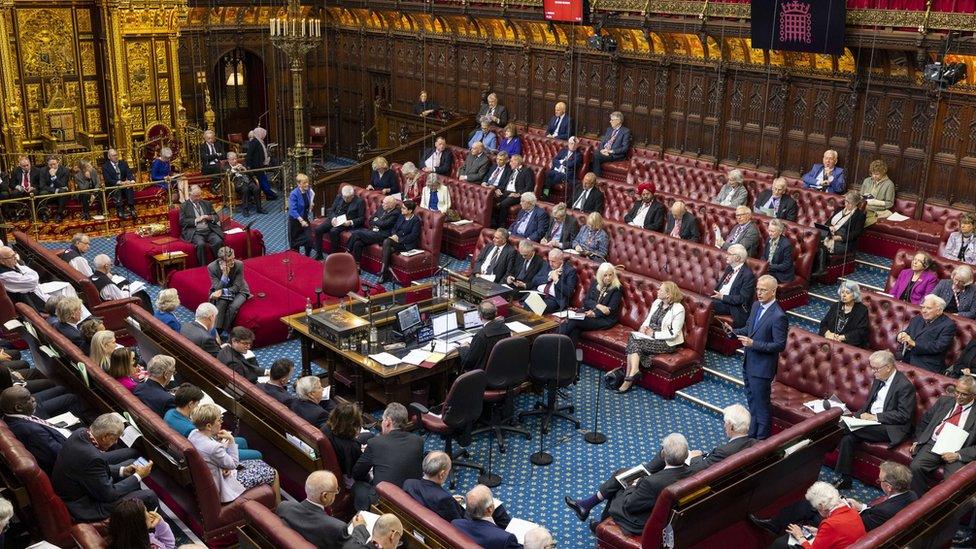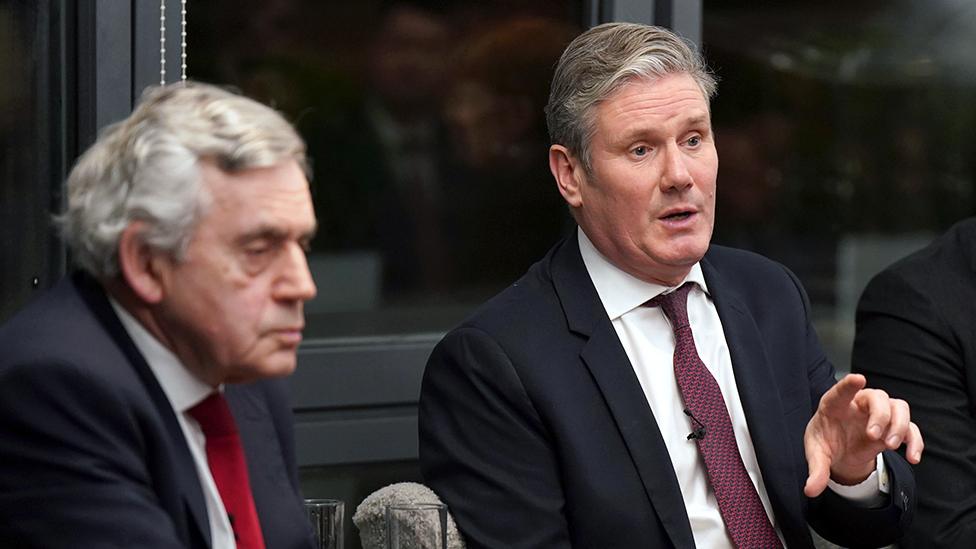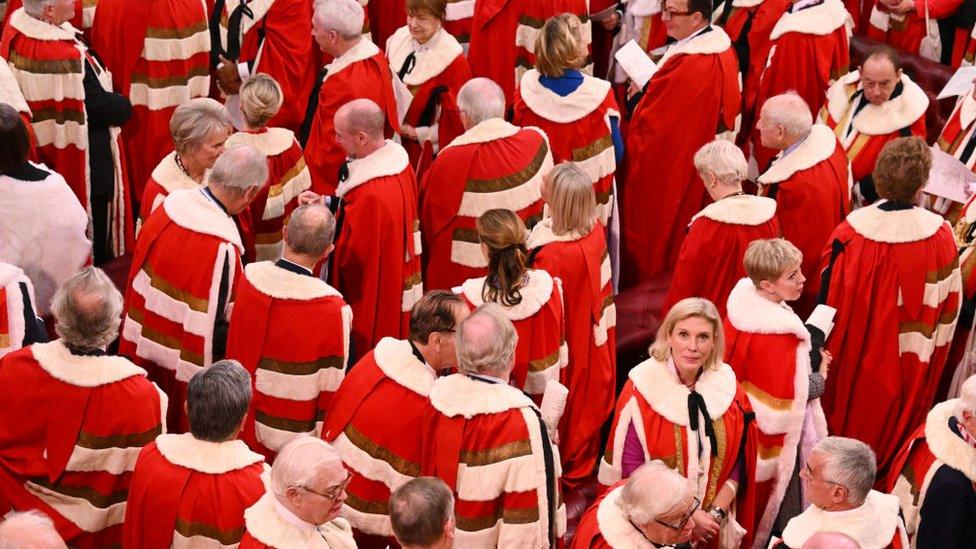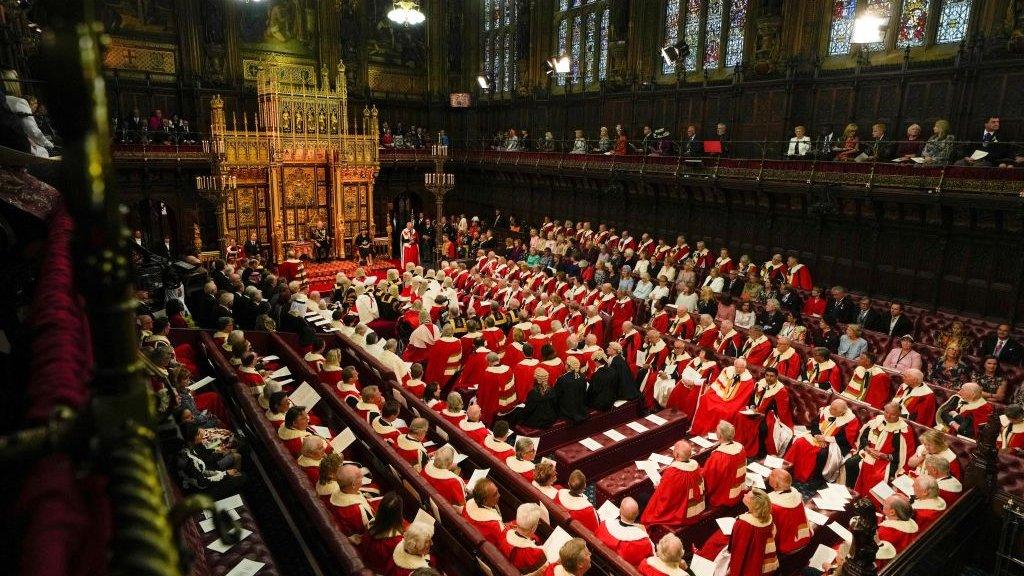Labour plans to expand Lords despite abolition pledge
- Published
- comments

Labour has insisted it still wants to abolish the Lords, despite planning to increase its size by creating new peers if it wins the next election.
Sir Keir Starmer's spokesman said he stood by a pledge to get rid of the Lords during a first term in office, but there could be "interim reforms".
Currently, Labour would need 90 more peers to overtake the Conservatives' 263 in the upper chamber.
New Labour peers would be expected to back abolition, the spokesman said.
Earlier, The Times reported, external that Labour was planning to appoint dozens of peers to the Lords to prevent a Starmer government having its agenda thwarted.
The spokesman said he did not recognise "arbitrary figures" and would not go into timescales.
But he admitted previous governments had needed more than one term to create enough peers to ensure they could get their business through Parliament.
He said: "Every government when they first come into power do not have a majority within the House of Lords because of the nature of the appointments process.
"And every government as a matter of custom and practice looks to make appointments to the House of Lords, but it's not something that's done in one fell swoop, it's something that takes time and often takes more than a term in government for that to happen."
Full details of the policy would be set out ahead of the next general election, he added.
But Labour's position raises a number of questions, including why appoint any peers at all if the number will not make Labour the largest party in the Lords before it is abolished.
There would be a question over who might take a peerage while having to commit themselves to abolishing it within five years.
'Indefensible'
At present, there are 174 Labour peers, 263 Conservatives, 84 Liberal Democrats and 183 unaligned crossbenchers.
In December, Sir Keir unveiled plans put forward by former Prime Minister Gordon Brown, external for sweeping constitutional changes, including replacing the Lords with an elected assembly representing the UK's nations and regions.
The Labour leader described the House of Lords as "indefensible".
Even before the new peers nominated in Boris Johnson's resignation honours list take up their positions, there are currently 779 members of one of the world's biggest upper chambers.
Lord Speaker Lord McFall, a former Labour MP, has argued that the Lords is too large and that its numbers should be reduced, but has pressed for reform rather than abolition.
Sir Keir's spokesman suggested reforms could take place before full abolition, such as getting rid of by-elections for the remaining hereditary peers.
"There may be interim reforms along the way, I'm not ruling that out," he said.
Former cabinet minister, Tory MP Sir Simon Clarke, has described Lords abolition as a "terrible idea".
"Anyone who has looked at the institutionalised gridlock in US politics can see the utter stupidity it would be to create an elected upper house," he said.
Labour peer and former cabinet minister Lord Mandelson has warned that, without agreement from other parties, Labour's plans risk dragging the party into a "quagmire", soaking up "acres of time and energy" that would be better spent on other priorities.
Related topics
- Published5 December 2022

- Published5 September 2024

- Published20 November 2022
